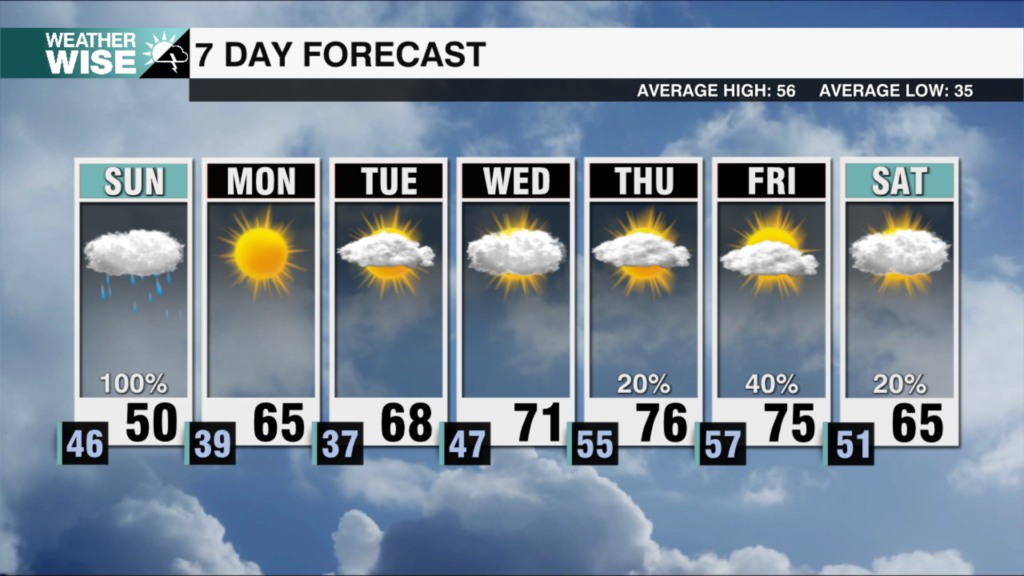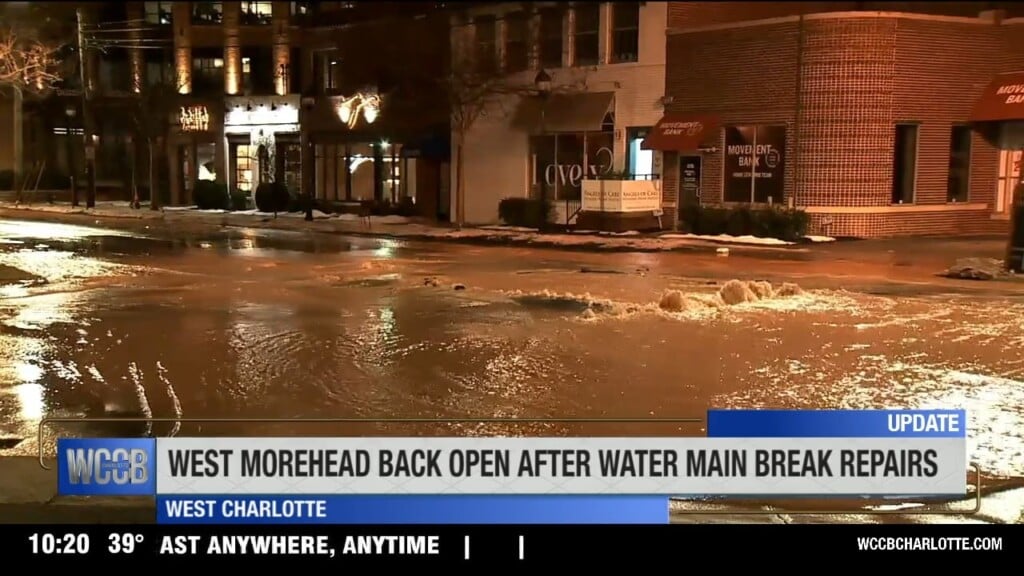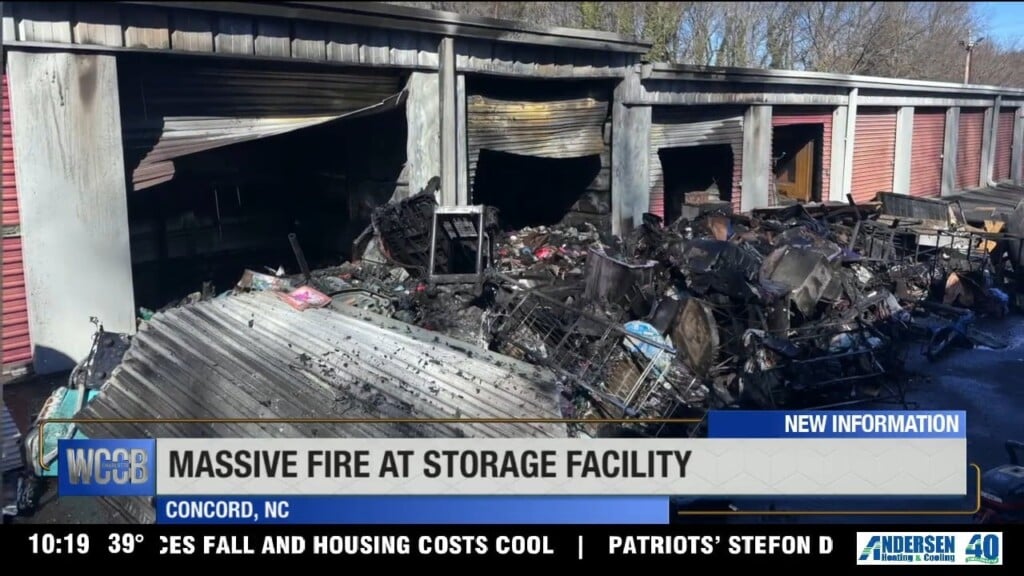Missile Hits Polish Town Near Ukrainian Border
PRZEWODOW, Poland (AP) — NATO member Poland and the head of the military alliance both said Wednesday that a missile strike in Polish farmland that killed two people did not appear to be intentional and was probably launched by air defenses in neighboring Ukraine. Russia had been bombarding Ukraine at the time in an attack that savaged its power grid.
“Ukraine’s defense was launching their missiles in various directions and it is highly probable that one of these missiles unfortunately fell on Polish territory,” said Polish President Andrzej Duda. “There is nothing, absolutely nothing, to suggest that it was an intentional attack on Poland.”
NATO Secretary-General Jens Stoltenberg, at a meeting of the 30-nation military alliance in Brussels, echoed the preliminary Polish findings.
The initial assessments of Tuesday’s deadly landing of the Soviet-era missile appeared to dial back the likelihood of the strike triggering another major escalation in the nearly 9-month-old Russian invasion of Ukraine. If Russia had deliberately targeted Poland, that could have risked drawing NATO into the conflict.
Still, Stoltenberg and others laid overall but not specific blame on Russian President Vladimir Putin’s war.
“This is not Ukraine’s fault. Russia bears ultimate responsibility,” Stoltenberg said.
Ukrainian President Volodymyr Zelenskyy disputed the preliminary findings and demanded evidence. He told reporters he had “no doubts” about a report he said he had personally received from his top commanders “that it wasn’t our missile or our missile strike.”
Ukrainian officials should have access to the site and take part in the investigation, he added.
“Let’s say openly, if, God forbid, some remnant (of Ukraine’s air-defenses killed a person, these people, then we need to apologize. We are honest people after all. But first there needs to be a probe, access — we want to get the data you have,” Zelenskyy said.
On Tuesday, Zelenskyy had called the strike “a very significant escalation.”
Before the Polish and NATO assessments, U.S. President Joe Biden had said it was “unlikely” that Russia fired the missile but added: “I’m going to make sure we find out exactly what happened.”
A Russian Defense Ministry spokesman in Moscow said no Russian strike Tuesday was closer than 35 kilometers (22 miles) from the Ukraine-Poland border. The Kremlin denounced Poland’s and other countries’ initial response and, in rare praise for a U.S. leader, hailed Biden’s “restrained, much more professional reaction.”
“We have witnessed another hysterical, frenzied, Russo-phobic reaction that was not based on any real data,” Kremlin spokesman Dmitry Peskov said.
Later Wednesday, Russia’s Foreign Ministry summoned the Polish ambassador in Moscow; the discussion reportedly lasted about 20 minutes.
Three U.S. officials said preliminary assessments suggested the missile was fired by Ukrainian forces at an incoming Russian one. The officials spoke on condition of anonymity because they weren’t authorized to discuss the matter publicly. That assessment and Biden’s comments at the Group of 20 summit in Indonesia contradicted information earlier Tuesday from a senior U.S. intelligence official who told The Associated Press that Russian missiles crossed into Poland.
The Polish president said the missile was probably a Russian-made S-300 dating from the Soviet era. Ukraine, once part of the Soviet Union, fields Soviet- and Russian-made weaponry, including air-defense missiles, and has also seized many more Russian weapons while beating back the Kremlin’s invasion forces.
Russia’s assault on power generation and transmission facilities Tuesday included Ukraine’s western region bordering Poland. Ukraine’s military said 77 of the more than 90 missiles fired were brought down by air defenses, along with 11 drones.
The countrywide bombardment by barrages of cruise missiles and exploding drones clouded the initial picture of what happened in Poland.
“It was a huge blast, the sound was terrifying.” said Ewa Byra, the primary school director in the eastern village of Przewodow, where the missile struck. She said she knew both men who were killed — one was the husband of a school employee, the other the father of a former pupil.
Another resident, 24-year-old Kinga Kancir, said the men worked at a grain-drying facility.
“It is very hard to accept,” she said. “Nothing was going on and, all of a sudden, there is a world sensation.”
In Europe, NATO members Germany and the U.K. laced calls for a thorough investigation with criticism of Moscow.
“This wouldn’t have happened without the Russian war against Ukraine, without the missiles that are now being fired at Ukrainian infrastructure intensively and on a large scale,” said German Chancellor Olaf Scholz.
Swaths of Ukraine were without power after the aerial assault. Zelenskyy said about 10 million people lost electricity, but tweeted overnight that 8 million were subsequently reconnected, with repair crews laboring through the night. Previous strikes had already destroyed an estimated 40% of the country’s energy infrastructure.
Ukraine said the bombardment was the largest on its power grid so far. Pope Francis said it caused him “great pain and concern.”
A Washington-based think tank, the Institute for the Study of War, said Ukraine’s downing of so many Russian missiles Tuesday “illustrates the improvement in Ukrainian air defenses in the last month,” which are being bolstered with Western-supplied systems. Sweden said Wednesday that an air defense system with ammunition would form part of its latest and largest package of military and humanitarian aid to Ukraine, worth $360 million.
The U.S. has been Ukraine’s largest supporter, providing $18.6 billion in weapons and equipment. U.S. Defense Secretary Lloyd Austin said flows of U.S. weapons and assistance would continue “throughout the winter so that Ukraine can continue to consolidate gains and seize the initiative on the battlefield.”
Russian attacks in the previous 24 hours had killed at least six civilians and wounded another 17, a senior official, Kyrylo Tymoshenko, said early Wednesday.
The Russian bombardment followed days of euphoria in Ukraine sparked by one of its biggest military successes — the retaking last week of the southern city of Kherson.
It also affected neighboring Moldova, which reported massive power outages after the strikes in Ukraine disconnected a power line to the small nation.
With its battlefield losses mounting, Russia has increasingly resorted to targeting Ukraine’s power grid, seemingly hoping to turn the approach of winter into a weapon by leaving people in the cold and dark.
The governor of the western Lviv province, Maksym Kozytskyy, said two of three Russian missile strikes there hit critical energy infrastructure. He said power had been restored to about 95% of the province, but only 30% of consumers can use electricity at the same time.
Power shortages caused extensive train delays that extended into Wednesday, the longest by seven hours, but there were no cancelations, because diesel locomotives were pressed into service, the national rail network said.
Kyiv resident Margina Daria said Tuesday’s strikes knocked out cellphone services in her area, where she rode out the attack in a corridor.
“We have already adapted to life without light, because we have scheduled outages every day, but without communication it was quite disturbing,” she said. “There was no way to even tell our families that we were OK.”





